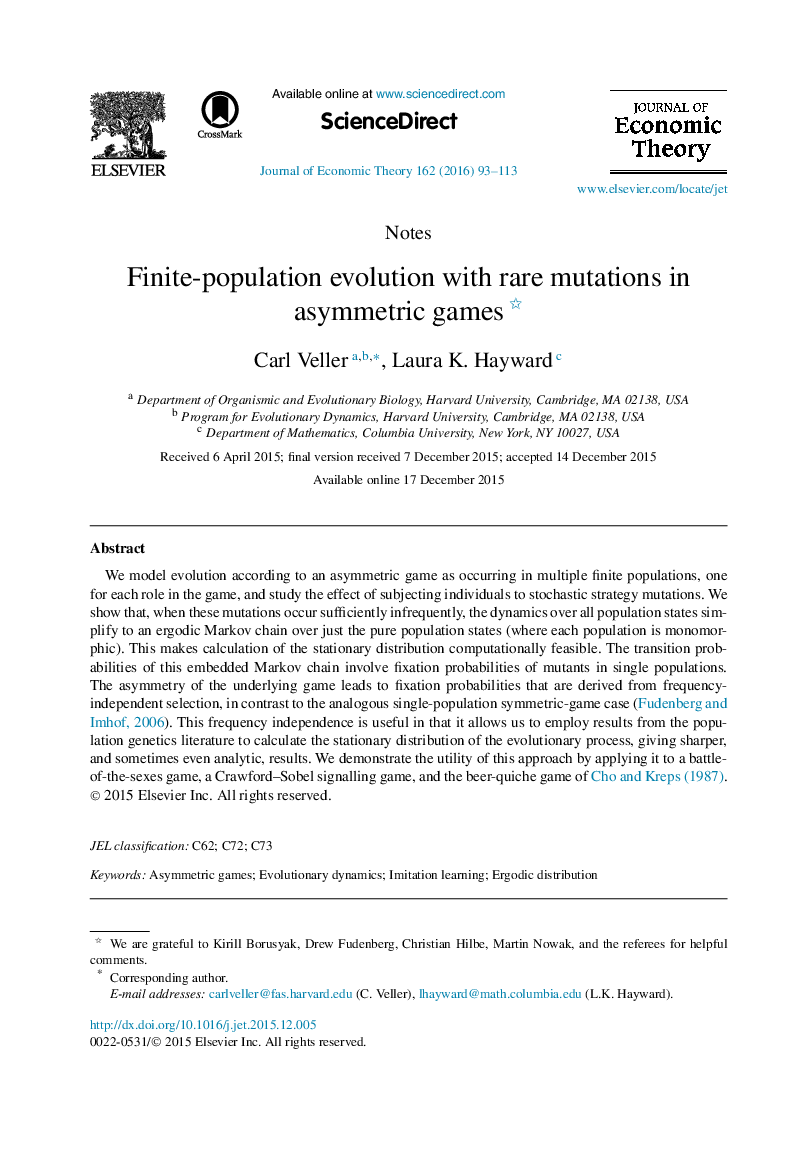| Article ID | Journal | Published Year | Pages | File Type |
|---|---|---|---|---|
| 7359561 | Journal of Economic Theory | 2016 | 21 Pages |
Abstract
We model evolution according to an asymmetric game as occurring in multiple finite populations, one for each role in the game, and study the effect of subjecting individuals to stochastic strategy mutations. We show that, when these mutations occur sufficiently infrequently, the dynamics over all population states simplify to an ergodic Markov chain over just the pure population states (where each population is monomorphic). This makes calculation of the stationary distribution computationally feasible. The transition probabilities of this embedded Markov chain involve fixation probabilities of mutants in single populations. The asymmetry of the underlying game leads to fixation probabilities that are derived from frequency-independent selection, in contrast to the analogous single-population symmetric-game case (Fudenberg and Imhof, 2006). This frequency independence is useful in that it allows us to employ results from the population genetics literature to calculate the stationary distribution of the evolutionary process, giving sharper, and sometimes even analytic, results. We demonstrate the utility of this approach by applying it to a battle-of-the-sexes game, a Crawford-Sobel signalling game, and the beer-quiche game of Cho and Kreps (1987).
Related Topics
Social Sciences and Humanities
Economics, Econometrics and Finance
Economics and Econometrics
Authors
Carl Veller, Laura K. Hayward,
